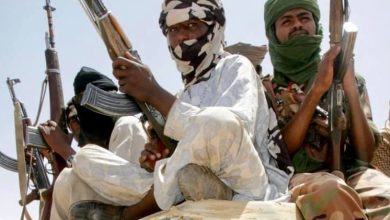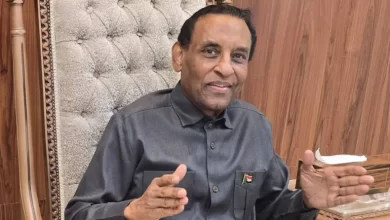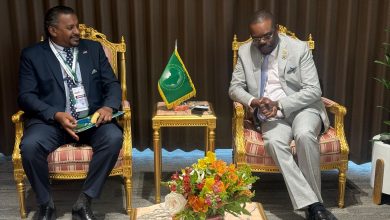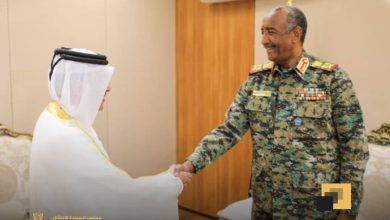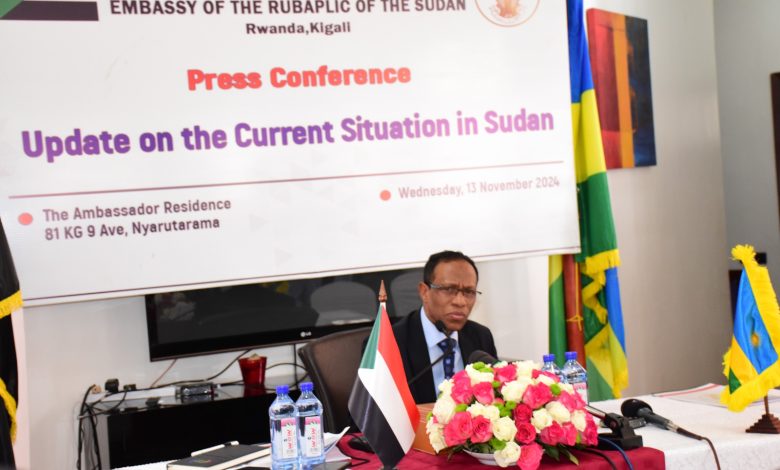
Sudan Events – Follow-ups
On Wednesday, the Sudanese Embassy in Rwanda held a press conference on the developments in Sudan and the violations by the Rapid Support Forces (RSF) militia.
Ambassador Khalid Musa outlined the RSF’s violations, including acts of ethnic cleansing, war crimes, and crimes against humanity, noting the abuses they committed across Sudan, with the latest incidents occurring in East Al-Jazirah. He emphasized that the humanitarian crisis resulting from the war is the largest globally, urging the African media to break the silence surrounding what has been called the “forgotten war” in Sudan, as it pricks the conscience of Africa and makes the phrase “African solutions to African problems” seem hollow.
He stressed that the involvement of some regional powers and neighboring countries in supporting the rebellious militia is a major reason for the continuation of the war and the crimes committed against civilians, particularly the recruitment of mercenaries and supplying the militia with weapons and military equipment. He called on these countries to heed reason and cease the transfer of military support across their territories to the militia in Sudan, noting that the impact of the ongoing war will extend beyond Sudan’s borders, posing a threat to regional stability as a whole.
He stated that Sudan is open to all peace initiatives, with the Jeddah Declaration being the foundation for achieving peace, provided that the rebellious militia commits to its terms, particularly vacating civilian areas and consolidating militia forces in agreed-upon camps. He added that forming a unified national army through the integration of all factions is essential for national unity and is the strongest element for Sudan’s stability.
In response to questions from journalists, he praised Rwanda’s historical role in participating in peacekeeping forces in Darfur in 2003, noting that Sudan, in light of the growing friendship and relations between the two countries, would consider Rwanda’s participation in peace and stability efforts as part of any African-led initiatives agreed upon to achieve lasting peace. He also commended President Kagame’s wise leadership in resolving African conflicts, acknowledging the political understandings between Sudan’s Sovereignty Council Chairman, General Abdel Fattah al-Burhan, and President Kagame.
Ambassador Khalid Musa also discussed the anticipated role of the U.S. after Trump’s win in bringing peace to Sudan, stating that the Biden administration had failed to take necessary steps to end the war, particularly by pressuring the UAE, a primary supporter of the militia. He urged the newly elected administration to address the situation in Sudan objectively to secure stability in the Horn of Africa, rather than viewing it merely within the framework of a broader Middle East geopolitical settlement that involves known compromises.
The ambassador praised the sacrifices made by the Sudanese people in supporting the armed forces, detailing the government’s efforts in humanitarian aid, healthcare services, managing wartime economic challenges, restoring basic services in some areas, and continuing the education process.
He called on the international community to classify the militia as a terrorist organization and to enforce accountability for the violations and crimes committed against civilians.
